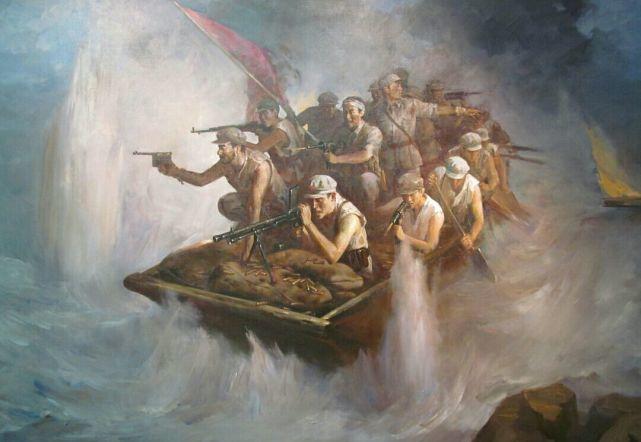History is the memory of things that have been said and done. —Carl Baker
In the Japanese war of aggression against China, after 14 years of fierce resistance, we finally won the final victory. In the past fourteen years of the War of Resistance Against Japanese Aggression, a number of national heroes and warriors of the War of Resistance have emerged one after another who have singed and wept in order to save the country and strive to become strong; their heroic deeds are worth remembering, their patriotic spirit is worthy of our study, and no matter how the times change, they are the most memorable people in the vast historical volume of the Chinese nation. There is such a veteran, and his deeds are also worth remembering.

The veteran's name was Hou Yongsheng, and during the War of Resistance Against Japanese Aggression he served as a captain in the Junxi guerrilla group in Xun County. Hou Yongsheng himself was very disgusted with the Japanese army, and he joined the guerrillas so that he could one day drive the Japanese army out of China. That time Hou Yongsheng led the team to Baisi Village, and heard the local villagers mention that there were Japanese troops guarding the city gate in the west of the city, and these Japanese troops often came to the village to grab the vegetables of the people. So Hou Yongsheng decided to reconnoiter the terrain.
What no one knows is that when Hou Yongsheng led the team to reconnoiter the terrain, he happened to encounter a Japanese officer leading more than eighty Japanese troops to patrol. At that time, the Japanese officers were in front of the horses, and the soldiers were far behind. This was a very good opportunity, out of instinct, before the officer found himself, Hou Yongsheng took the lead in taking out a gun and killing the Japanese officer, immediately took the officer's saber and gun away, and led the team to quickly evacuate the field where he had hidden.
And the Japanese army was leaderless, because the incident was sudden, no one reacted, and in this way, a senior officer of the Japanese army was killed by Hou Yongsheng. Later, I learned that this Japanese army had originally heard the traitors say that there were guerrillas in the village who came to patrol, and they just collided with Hou Yongsheng, so there was a scene ahead. Later, the Japanese army became angry and ashamed, thinking that the traitors had deceived them, so they killed the traitors as well.
This time, Hou Yongsheng not only killed the opposing officer, but also got the other party's sabre, a Japanese samurai sword. After the end of the War of Resistance Against Japanese Aggression, Hou Yongsheng still kept this saber, because this is not only the glory of Hou Yongsheng, but also a strong evidence of the Japanese army's invasion of China, so even if some Japanese people later wanted to spend thirty million yuan to buy this knife, but Hou Yongsheng did not think about it, he refused to take a bite, saying that no amount of money would be sold, and finally donated the knife to the museum.